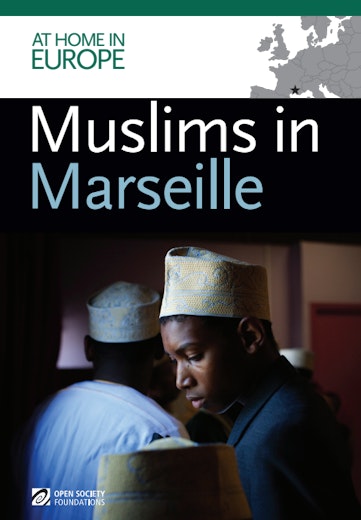“Christmas and Easter are marked as holidays, but not Eid or the end of the fast [of Ramadan]. Every time, we need to explain why we are asking for a day off, because according to the calendar it's a normal working day. In private firms, if you want [holiday] leave, you have to ask for a day off. Then it’s either yes or no. It's up to the boss, if he doesn’t want it, we can't have it."
—Interview with trade unionist
Muslims in Marseille highlights the city's deep divisions and the vast inequities in education, employment, and housing faced by the city's Muslim residents. While there have been shortcomings in the implementation of laïcité—France’s long-standing policy of secularism in government affairs and public institutions—in Marseille, research shows that local-based initiatives can help foster better relations between Muslim residents and their city.
The research in the report focused on the neighborhood of the 3rd arrondissement in Marseille and offers a snapshot of the daily lives and experiences of the city's diverse Muslim, non-Muslim, and minority residents. By engaging with communities and policymakers, local experts explored the primary concerns of Muslim inhabitants in the areas of education, employment, health, housing and social protection, citizenship and political participation, policing and security, media, belonging, identity, and interactions.
The report follows up on its findings by offering a series of recommendations for local and national authorities, Muslim communities and other minority groups, NGOs and community organizations, the media, and broader civil society.
Muslims in Marseille is the ninth in the Muslims in EU Cities series produced by the Open Society Foundations' At Home in Europe Project. It is the result of research that examines the level and nature of integration of Muslims in 11 cities across Europe (Antwerp, Amsterdam, Berlin, Copenhagen, Hamburg, Leicester, London, Marseille, Paris, Rotterdam, and Stockholm).
The report and a fact sheet based on the report’s findings are available for download. Both are available in English and French.
Hard copies of the report can be requested, but please note that they may not always be available. To order one, please contact Csilla Tóth at cstoth@osi.hu.
Download
-
Muslims in Marseille (English) (1.97 Mb pdf file)
Download the complete 322-page report in English.
-
Muslims in Marseille (French) (2.08 Mb pdf file)
Download the complete 316-page report in French.
-
Fact Sheet: Findings and Recommendations (English) (60.3 Kb pdf file)
Download the summary fact sheet in English.
-
Fact Sheet: Findings and Recommendations (French) (62.91 Kb pdf file)
Download the summary fact sheet in French.
